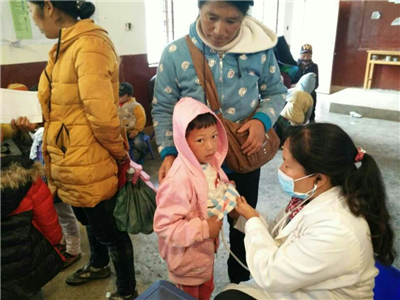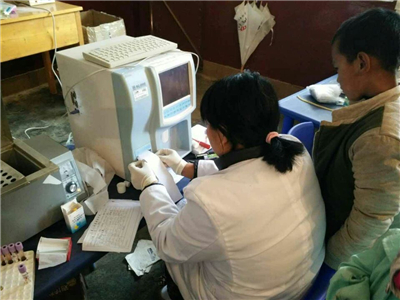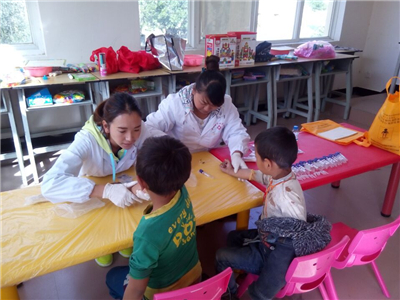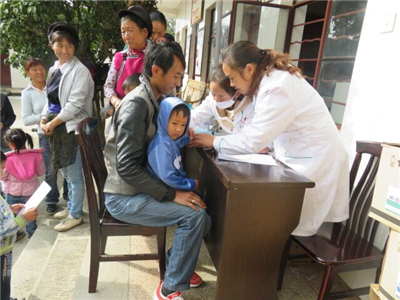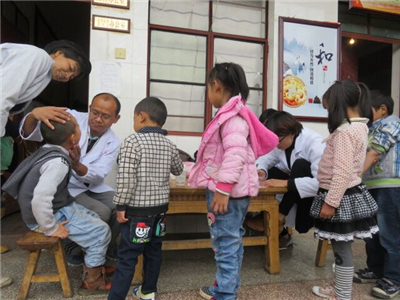Home \ Project News \ “Kawagebo Plan”-413 students received health check
“Kawagebo Plan” is a Yunnan ethnic minority early childhood development project in Heqing County, Shangri-la County and Deqin County of Yunnan Province funded by China Social Welfare Foundation. The project is a two year project starting at the beginning of 2015.
The research conducted by China Development Research Foundation indicated that in the impoverished rural areas of China, 20.3% children under 5 years old were malnourished, 19% students aged between 6-15 years old were also malnourished. That was to say, one in every 5 children in the impoverished areas was malnourished. Therefore, our project also focuses on the health and hygiene situation of children in early childhood. We do health tests of our children , provide at least 1 daily meal and improve the hygiene of the children. Even more crucial is to guide parents to properly bring up their children, help them to keep away from diseases and grow healthily based on baseline survey results and the health check results.
On October 8-15, the project organized the health centers of Heqing County, Shangri-la County and Deqin County to conduct health check of 408 children. Apart from routine health check (height, body weight, ENT department, internal medicine department and surgical department), blood routine tests, blood type tests and hepatitis B tests were also done, the differences to earlier health checks was that venous blood was collected this time, which increased the difficulties for organizing the activities. Many children needed the company of their parents in order to get the blood collected. HPPC staff and preschool teachers worked with the parents to help the doctors do this work successfully. This was a big challenge for the children. Before blood was taken only from the fingers, and they were very scared. But being encouraged by teachers and parents, they all bravely agreed to get their blood collected from their vein.
In Heqing County, 115 children should do the health check. 113 received the health check. 2 of them only did routine physical test and their blood was not collected. In Shangri-La County, 241 children should do the health check, and 241 children did the test.In Deqin County, 52 children should do the health check. 51 received the health check.
When the project staff got the reports from the Health Centers, they held conclusion meetings with teachers and parents of each village. The contents include developing scientific and appropriate recipes. The nutrition and energy in the food should meet children’s physical and growing needs, and they could not overeat. Develop good living habits, and eat enough vegetables and fruits. Eat at fixed time and amount. Do not eat snacks. Eat nutritious food for breakfast and eat less and simple for supper.
The project will strengthen education about disease prevention and control and daily health care knowledge. The project will also guide parents to supervise children to brush teeth in the morning and in the evening, rinse mouth after meal, eat less candy and not eat snacks before going to bed. Children should be educated not to become picky eater, and eat more food with rich iron such as lean meat, animal liver and vegetables with dark color. They should also be educated to have healthy eating habits. Parents should prohibit children to watch TV or play mobile phone for a long time. They should educate children to have good habit of reading books, in order to reduce problems such as short sightedness, weak sight and astigmatism.
Strengthen physical exercises and encourage children to participate in group activities and fitness activities.
From the health check, it was found that generally the children lack immunity to hepatitis B virus. It is recommended that children without antibody be vaccinated.
The project is funded by United Bank of Switzerland (UBS). The other partners are China Social Welfare Foundation (CSWF) and Right to Play (RTP). 
